![]() Madhavi Gaur
Madhavi Gaur
![]() July 24, 2023 12:29
July 24, 2023 12:29
![]() 11548
11548
![]() 0
0
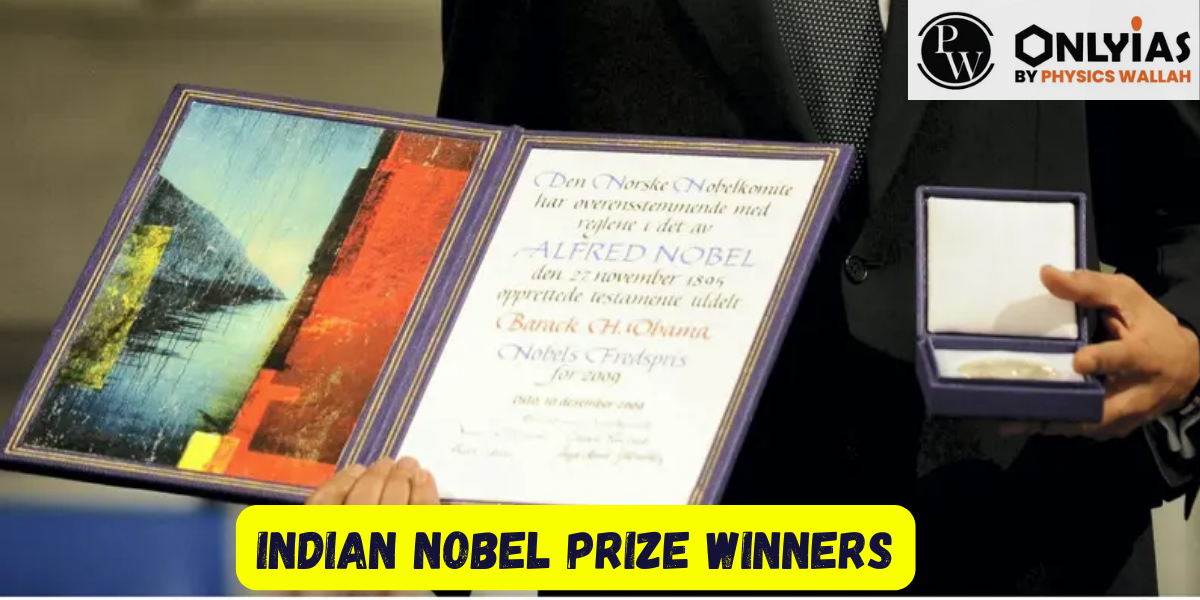
The Nobel Prize is a prestigious international award given annually in six fields: Literature, Physics, Chemistry, Economic Sciences, Peace, and Physiology or Medicine. It honors outstanding contributions that benefit humanity and includes a gold medal, diploma, and monetary award. The prizes are presented on December 10th, celebrating achievements and inspiring further advancements. This article is about the complete list of Indian Nobel Prize Winners from 1913 to 2023.
The Nobel Prize, considered one of the most prestigious honors in the world, is awarded annually in recognition of outstanding achievements in six different fields: Literature, Physics, Chemistry, Economic Sciences, Peace, and Physiology or Medicine. Over the years, several distinguished Indians have been acknowledged with this coveted award for their significant contributions to humanity. This article presents a comprehensive list of Nobel Prize winners from India, highlighting their remarkable accomplishments and the fields in which they were recognized.
Nobel Prize Winners in India: The Nobel Prize is a globally renowned award that has honored many Indians for their exceptional contributions in various fields such as Literature, Physics, Chemistry, Economic Sciences, Peace, and Physiology or Medicine. Those who receive this prestigious honor are known as Laureates and are presented with a gold medal, a diploma, and a monetary reward.
This article celebrates the outstanding achievements of a select group of Indians who dedicated their entire lives to the betterment of humanity, and as a mark of gratitude and recognition, were bestowed with the Nobel Prize in their respective domains. Before delving into the comprehensive list of Indian Nobel Prize Winners from 1913 to 2023, let’s explore the history of the Nobel Prize and the significance of its insignia.
The Nobel Prize, established in 1901 in memory of Swedish scientist Alfred Nobel, is bestowed upon individuals who have made significant contributions to humanity. The first Indian to win this esteemed award was Rabindranath Tagore in 1913, recognized for his exceptional poetry that became a part of Western literature. Here is the list of Nobel Prize winners from India.
[/radius_table]
| List of Indian Nobel Prize Winners | ||
|---|---|---|
| Name | Nobel Prize Category | Year |
| Rabindranath Tagore | Literature | 1913 |
| C.V. Raman | Physics | 1930 |
| Har Gobind Khorana | Physiology or Medicine | 1968 |
| Mother Teresa | Peace | 1979 |
| Subrahmanyan Chandrasekhar | Physics | 1983 |
| Amartya Sen | Economic Sciences | 1998 |
| Venkatraman Ramakrishnan | Chemistry | 2009 |
| Kailash Satyarthi | Peace | 2014 |
| Abhijit Banerjee | Economic Sciences | 2019 |
[/radius_table]
The Nobel Prize, considered one of the most prestigious honors in the world, is awarded annually in recognition of outstanding achievements in six different fields: Literature, Physics, Chemistry, Economic Sciences, Peace, and Physiology or Medicine. Over the years, several distinguished Indians have been acknowledged with this coveted award for their significant contributions to humanity. This article presents a comprehensive list of Nobel Prize winners from India, highlighting their remarkable accomplishments and the fields in which they were recognized.
Rabindranath Tagore, the eminent Indian poet, and writer was the first Indian to be awarded the Nobel Prize. His timeless literary works, which include the collection of poems “Gitanjali,” garnered international acclaim and earned him the prestigious accolade in Literature in 1913.
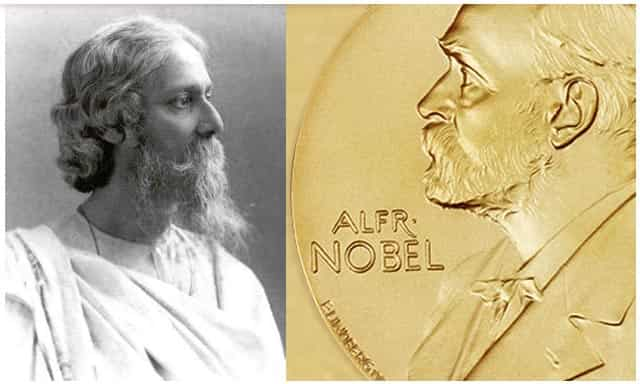
Sir Chandrasekhara Venkata Raman, commonly known as C.V. Raman, was a renowned physicist whose groundbreaking discovery of the Raman Effect in light scattering earned him the Nobel Prize in Physics in 1930.

Dr. Har Gobind Khorana, an Indian-American biochemist, shared the Nobel Prize in Physiology or Medicine in 1968 for his pioneering research on the interpretation of the genetic code and protein synthesis.
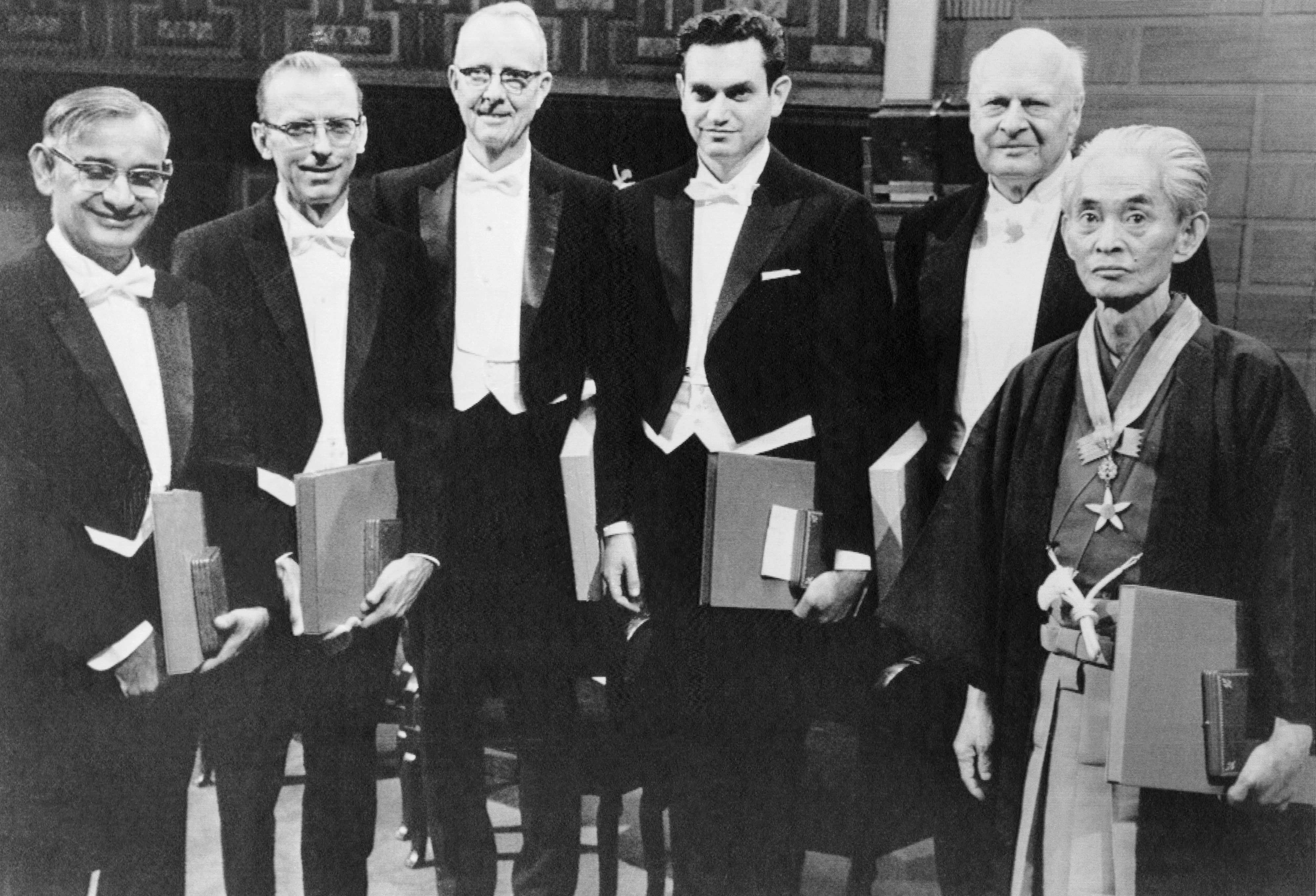
A symbol of compassion and selfless service, Mother Teresa, an Albanian-Indian Roman Catholic nun, was awarded the Nobel Peace Prize in 1979 for her humanitarian work, caring for the destitute and downtrodden in India.
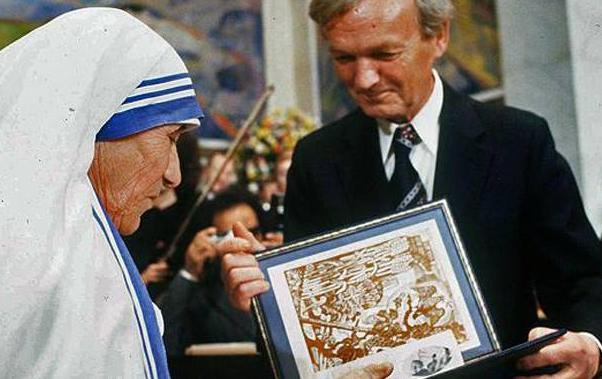
Dr. Subrahmanyan Chandrasekhar, an Indian-American astrophysicist, was honored with the Nobel Prize in Physics in 1983 for his groundbreaking theoretical discoveries concerning the structure and evolution of stars.

Renowned economist and philosopher, Amartya Sen, was awarded the Sveriges Riksbank Prize in Economic Sciences in Memory of Alfred Nobel (commonly known as the Nobel Prize in Economics) in 1998 for his contributions to welfare economics and social choice theory.

Dr. Venkatraman Ramakrishnan, an Indian-born American-British structural biologist, was honored with the Nobel Prize in Chemistry in 2009 for his work on the structure and function of the ribosome, a key component of cells.
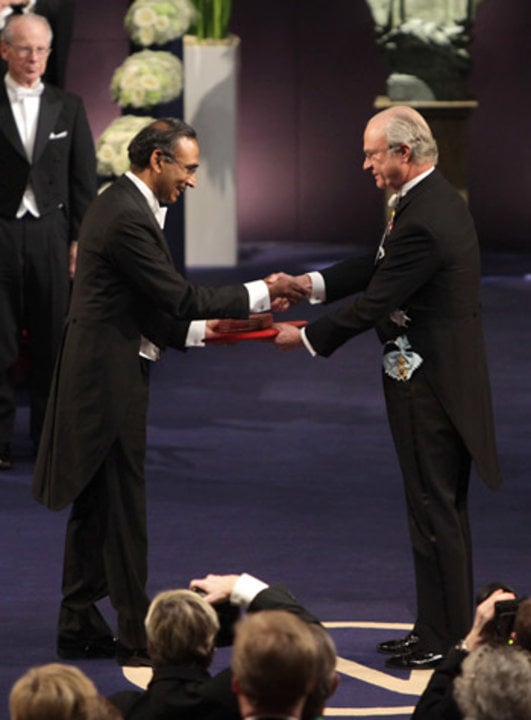
Kailash Satyarthi, an Indian children’s rights activist, shared the Nobel Peace Prize in 2014 for his tireless efforts to combat child labor and promote the right to education for all children.
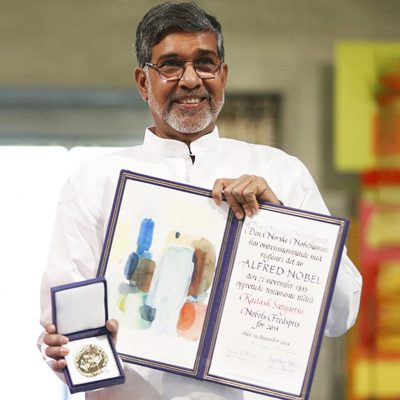
Abhijit Banerjee, an Indian-American economist, was awarded the Sveriges Riksbank Prize in Economic Sciences in Memory of Alfred Nobel (Nobel Prize in Economics) in 2019 for his experimental approach to alleviating global poverty.
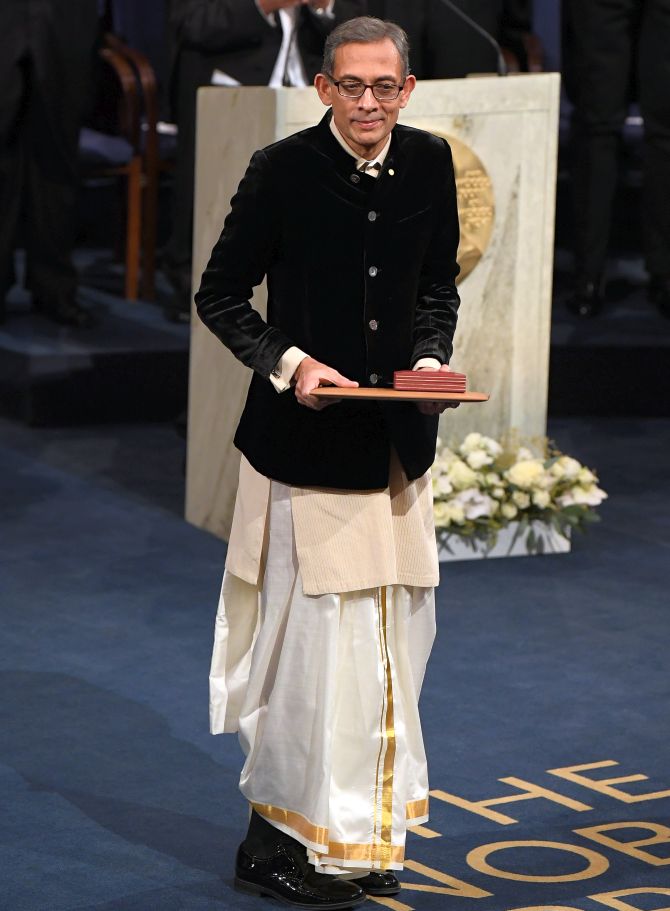
Esther Duflo, a French-American economist, shared the Nobel Prize in Economics in 2019 with Abhijit Banerjee and Michael Kremer for their experimental work in alleviating poverty.
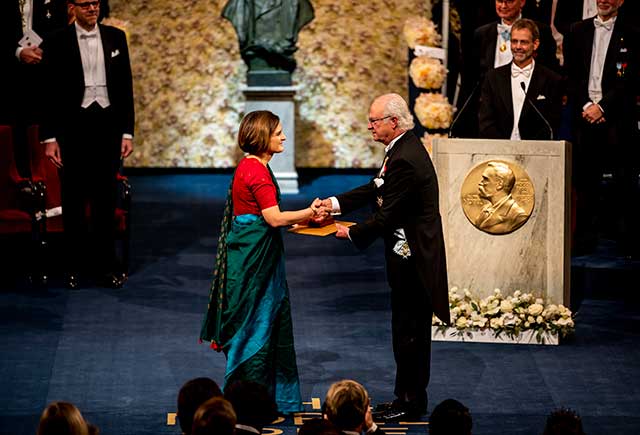
These distinguished individuals have made significant contributions to their respective fields, and their work continues to inspire and impact generations around the world. Their achievements serve as a testament to the power of knowledge, innovation, and compassion in shaping a better future for humanity.
The Nobel Prize, one of the most prestigious awards in the world, was established by the will of Swedish inventor, scientist, and philanthropist Alfred Nobel. Born on October 21, 1833, Nobel was a prolific inventor, holding over 350 patents for various inventions, including dynamite. He was a man of contradictions, as he made significant contributions to science and technology, yet his inventions were often used for destructive purposes in warfare.
Upon his death on December 10, 1896, Alfred Nobel left the majority of his fortune to fund the Nobel Prizes. The Nobel Prize was established in his will, and he designated that the prizes be awarded annually in six categories: Physics, Chemistry, Medicine, Literature, Peace, and later added, Economic Sciences.
The Nobel Prizes are awarded to individuals or organizations that have made significant contributions to humanity in these respective fields. Nobel’s desire to leave a lasting legacy that would benefit humanity is reflected in his choice of award categories, which cover a wide range of achievements that promote progress, knowledge, and peace in the world.
The first Nobel Prizes were awarded in 1901, and since then, they have become the pinnacle of recognition for outstanding achievements in various fields. The Nobel Prizes are awarded on December 10 each year, the anniversary of Alfred Nobel’s death, in ceremonies held in Stockholm, Sweden, and Oslo, Norway (for the Nobel Peace Prize).
Over the years, the Nobel Prize has recognized countless individuals and organizations for their groundbreaking contributions and tireless efforts to improve the world we live in. The Nobel Prize continues to serve as a symbol of excellence and inspiration, motivating individuals from all walks of life to strive for greatness and contribute positively to society.
The Nobel Prize Insignia is a symbol of the prestigious award and is an integral part of the Nobel Prize ceremony. The design of the Nobel Prize Insignia was created by Swedish artist Erik Lindberg and was first used in 1901 when the first Nobel Prizes were awarded.
The Insignia features a central image of Alfred Nobel, the founder of the Nobel Prize, in profile. Surrounding his image are the words “Alfred Nobel” and the years of his birth and death, “1833-1896.”
On the reverse side of the Insignia, there is an image of the figure “Genius,” who is depicted holding a laurel wreath in one hand and a book in the other. The figure of Genius represents the inspiration and creativity that the Nobel Prizes seek to honor and recognize.
The Insignia is made of 18-carat recycled gold and is about 66 millimeters in diameter for the medals awarded in Physics, Chemistry, Medicine, Literature, and Economic Sciences. The Peace Prize medal is slightly larger, with a diameter of about 85 millimeters. The medals are produced by Svenska Medalj AB, a Swedish company specializing in minting medals and coins.
In addition to the gold medal, Nobel Laureates also receive a diploma and a cash prize, which varies in amount each year. The Nobel Prize Insignia, along with the diploma and the prize money, is presented to the Laureates at the Nobel Prize award ceremonies held in Stockholm and Oslo.
The Nobel Prize Insignia is a symbol of excellence and recognition for outstanding achievements in various fields. It is a tangible representation of the legacy of Alfred Nobel and his vision to honor those who have made significant contributions to humanity. The Insignia serves as a reminder of the importance of knowledge, peace, and progress in shaping a better world for future generations.
The Nobel Prize holds immense value, both in terms of prestige and recognition. It is one of the most prestigious awards in the world and is highly esteemed in the fields of science, literature, peace, and economics. The value of the Nobel Prize goes beyond monetary worth, as it represents the highest honor that can be bestowed upon an individual or organization for exceptional contributions and achievements.
Monetary Value: As of my knowledge cutoff in September 2021, the cash prize awarded along with the Nobel Prize varies each year and depends on the funds available from the Nobel Foundation’s investments. In recent years, the Nobel Prize cash award has been around 10 million Swedish kronor (SEK) per category, which is approximately equivalent to 1.1 million USD. However, the amount may fluctuate due to market conditions and other factors.
Prestige and Recognition: The real value of the Nobel Prize lies in the prestige and recognition it brings to the recipients. Nobel Laureates are regarded as pioneers and visionaries in their respective fields, and their work is acknowledged as groundbreaking and transformative. Winning a Nobel Prize can significantly impact a laureate’s career, providing international recognition and opening doors to further research opportunities, collaborations, and contributions to society.
Impact on Research and Humanity: The Nobel Prize often serves as a catalyst for further research and advancements in the fields for which it is awarded. Laureates are seen as role models, inspiring new generations of scientists, writers, and peace activists to pursue excellence and make significant contributions to humanity. Their work serves as a guiding light for future endeavors aimed at improving the well-being of people worldwide.
Legacy and Inspiration: The legacy of the Nobel Prize is far-reaching, as it commemorates the vision and generosity of Alfred Nobel, the inventor of dynamite who left his fortune to fund the awards. Nobel’s desire to reward those who contribute to the betterment of humanity continues to inspire individuals and organizations to work towards creating positive change and making the world a better place.
Q1: How many Nobel Prizes have been won by India?
Ans: A total of 9 Nobel Prizes have been won by individuals of Indian origin or Indian citizenship. The Nobel Prizes have been awarded to Indians in various categories, including Literature, Physics, Chemistry, Peace, Medicine, and Economic Sciences. Below is the list of Indian Nobel Prize winners:
Q2: Who is the 1 Indian who got Nobel Prize?
Ans: The first Indian to be awarded the Nobel Prize was Rabindranath Tagore. He received the Nobel Prize in Literature in 1913 for his book of poems titled “Gitanjali,” which garnered international acclaim and recognition for his profound and beautiful verse. Rabindranath Tagore is widely regarded as one of India’s most celebrated poets and writers, and his contributions to literature have left a lasting impact on the world of poetry and literature.
Q3: Who are the 5 Indians to win Nobel Prize?
Ans: Five Indian citizens have been honored with the prestigious Nobel Prize. These distinguished Indian Nobel laureates include Rabindranath Tagore in Literature, CV Raman in Physics, Mother Teresa in Peace, Amartya Sen in Economic Sciences, and Kailash Satyarthi in Peace. Their remarkable contributions have earned them a place among the world’s most esteemed laureates.
Q4: Who are the 1st 3 Nobel Prize winners in India?
Ans: The first three Nobel Prize winners from India are:
Important Articles of Indian Constitution Complete List 2023
Gardens in India 2023: Complete List of Prominent Gardens in India
<div class="new-fform">
</div>

Latest Comments